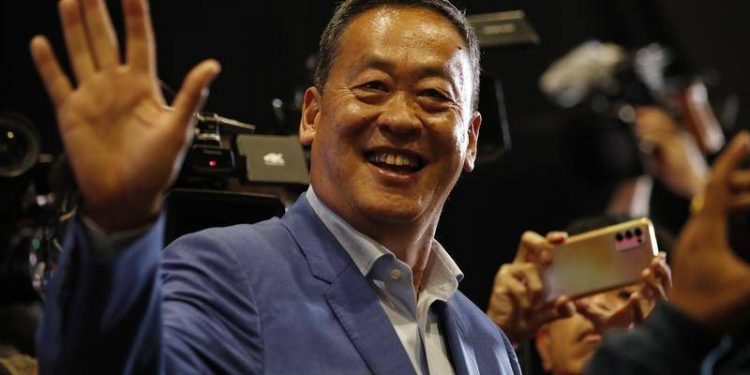An attempt to install a government in Thailand truly wedded to the principles of democracy is nipped in the bud with the second largest party – Pheu Thai Party – forming an alliance with parties that include some that are controlled by former army generals. The military has been ruling the country for over a decade. Observers describe the development as a betrayal of democracy since the Pheu Thai promised to the people, during the run-up to the elections held in May, that it would not form government with the help of the parties linked to Prayuth Chan-ocha and Prawit Wongsuwan, both retired generals and outgoing Prime Minister and Deputy Minister, respectively.
The post-election realignment of forces enabled real estate tycoon Srettha Thavisin of the Pheu Thai, controlled by former Prime Minister Thaksin Shinawatra, to become the Prime Minister. He got the royal endorsement after his party broke ranks with the Move Forward, which won the highest number of seats, and joined forces with the royal family, the army and business establishments.
The election of last May 14 saw Thai voters clamouring for change after nearly a decade of military rule. Move Forward had campaigned on bringing radical reforms to Thailand’s power structure, including dismantling monopolies, reforming the military and amending the law insulating the monarchy. But the military and royal forces joined together and Move Forward, headed by Pita Limjaroenrat, was prevented from forming the government despite being the largest party in parliament. Rightly, the party’s Secretary-General Chaithawat Tulathon, remarked the new coalition government “distorts the will of the people in the elections.”
That an opportunistic deal had been struck between Pheu Thai and the pro-royal and pro-army forces became apparent when Thaksin returned to Thailand after 15 years in self-imposed exile the day Sretta Thavisin got the green light to be the PM. The tradeoff seems to be that the Pheu Thai’s coalition partners will have things go their way in return for a plausible royal pardon of Thaksin’s corruption while he was PM. Many Thais were disappointed when Pheu Thai broke the alliance with Move Forward and formed a new coalition with parties linked to Prayuth, who was instrumental in orchestrating a coup ousting the last Pheu Thai government led by Thaksin’s sister, Yingluck, in 2014. Ahead of the election, the two parties had both refused to team up with coup leaders.
The logic put forward by Pheu Thai for its volte face strains credulity. Sretta explained that the Thai people should accept the reality that many are waiting for the government and the policies of the party which cannot be implemented without a government led by Pheu Thai.
After the 2014 coup, Thailand’s constitution was rewritten to make it nearly impossible for parties not backed by the military and conservative elites to form a government. Move Forward’s surprise victory was a major blow to the military-royalist conservatives and eventually the threat posed by the progressive party’s huge popularity outweighed the establishment’s rivalry with the Shinawatra family.
Srettha is an outsider without any experience in government. Things went in his favour as the 60-year-old real estate mogul has a proven track record in business. Before his political debut, Srettha was president of one of Thailand’s biggest real estate developers. Born in Bangkok and educated in the United States, Srettha holds a bachelor’s degree in economics from the University of Massachusetts and a master’s in finance from Claremont Graduate University in California.
It is this background that makes him a favourite with Thailand’s business community. In a recent survey two-thirds of 100 CEOs in Thailand said they wanted him at the helm. As such he is expected to better handle Thailand’s precarious economy plagued by soaring prices, oil crisis and the effects of COVID-19. However, critics doubt his track record as a successful businessman will help much since his hands are likely to be tied by his allies that will not allow him to push for policies in the way he wants. He will have to cobble together an alliance with a diverse range of interests and keep in good humour the establishment that helped put him in office.
As such Thailand has missed an opportunity to have a tryst with real democracy and this has come as a great blow to the people hoping to neutralise the influence of the monarchy and military on the politics of Thailand.
This is the grim picture of Thailand today. India, as its neighbor, has had the distinction of being a vibrant democracy with regular elections and an established order of governance that has withstood the test of time. Yet, today India too seems to be dithering and tripping. It is no better than its neighbors like Thailand, Burma or Pakistan. The people of India are solely responsible for bringing upon themselves what they decide as best for their interest.






































